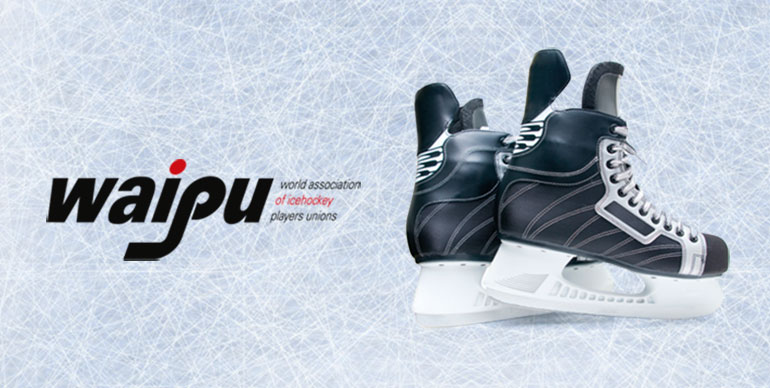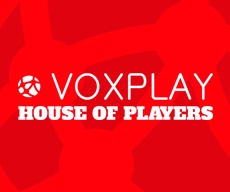Chronic | A turning point in the history of Canadian junior hockey?

The Canadian major junior hockey leagues would do well not to take lightly the class action lawsuit that was filed against them in the United States last Tuesday. The matter is so serious that we are probably witnessing a turning point in the history of Canadian hockey, believe two lawyers.
The North American division of the World Association of Ice Hockey Players Unions (WAIPU) along with two former Western Junior League players, Tanner Gould and Isaiah Di Laura, filed this class action in New York Federal Court .
The plaintiffs allege that the three Canadian leagues as well as the NHL violate US anti-monopoly laws because they benefit from several agreements that have the effect of removing the ability of players aged 16 to 20 to freely determine their career trajectory and monetize their talent.
And these agreements ensure, according to the plaintiffs, that junior hockey players receive $70 per week, even though they are the driving force behind an industry that generates revenues of several hundred million per year.
***
In recent years, Canadian leagues have been the subject of several class action claims before Canadian courts.
Former players notably demanded the status of employees, and others attacked what they considered to be anti-competitive practices of leagues and junior teams. There was also this class action request denouncing horrific physical and sexual abuse suffered by recruits.
Two of these three appeals are still progressing before the Canadian courts. And so far, the leagues have managed to limit the damage from a financial point of view.
However, the action filed in recent days in New York is completely different, believe two lawyers interviewed by Radio-Canada Sports.
“It is very serious. This is not a frivolous pursuit. This is definitely a turning point in the history of Canadian hockey”, believes Me Daniel Martin Bellemare. Member of the Quebec bar and the Vermont bar.
He is particularly recognized for his practice in the field of American antimonopoly law.
Professor and vice-dean of the Faculty of Law at the University of Montreal, Me Pierre Larouche agrees.
“There is a lot of case law in the United States on professional sports (in relation to anti-monopoly laws). It is even a favorite area of American law. The plaintiffs have done their homework. I am not sure that everything they are alleging will pass, but instead of hockey leagues, I would hurry up and organize myself because it is a serious matter”, says Professor Larouche.
***
In the more than 100-page document they filed in New York Federal Court, the lawyers are not only raising a commercial dispute. They also refer to cases of physical and sexual abuse mentioned in the context of an action brought in Canada. They also refer to the report that the three leagues commissioned from an independent committee in 2020 and which affirmed that bad behavior had become a cultural norm in junior hockey .
“The complainants have made it very clear that it is not just a question of athletes who would like to have more money, says Professor Larouche, but that it is also athletes, some of whom are minors, who are in difficult conditions and who need help.”
“The first thing I saw is that we have contextualized the matter well and that it will be difficult for the Canadian junior leagues to argue that, on the contrary, the system is advantageous for the players”, adds Professor Larouche.
With regard to the crux of this dispute, that is to say the barriers to limit the players’ remuneration to a few hundred dollars per month, Me Daniel Martin Bellemare believes that the alleged facts of the plaintiffs are very well presented in regarding American competition law.
“This is a huge conspiracy or agreement to limit competition. There are an incredibly large number of stakeholders in all of this. The plaintiffs even claim in the suit that the proof of what they allege is found in written documents. This is extraordinary because, generally, the people and companies involved in this type of agreement do not put it in writing. These are usually agreements that are concluded in secret, on the sly”, analyzes Me Bellemare.
***
In the United States, we don’t mess around with anti-monopoly law, known as the Sherman Act . Those who violate it face fines of up to $100 million.
And that’s not all: if defendants are ordered to pay damages, the amount is automatically tripled because it is a violation of antimonopoly law.
“The plaintiffs are seeking damages equivalent to what the players would have earned if they had not been caught in a system forcing them to earn $70 a week. When you take that difference and multiply it by thousands of players, and then multiply that sum by three because of the requirements of the law, that means there’s a lot of money at stake.”
“If this judgment were successful, Canadian major junior hockey would probably go bankrupt immediately and the business model would completely change”, believes Professor Pierre Larouche.
The latter emphasizes that in addition, this class action is brought at a time when there is a resurgence of interest in the United States to break agreements between employers which aim to restrict employee mobility.
“This context works in favor of junior hockey players”, specifies Me Larouche.
In short, the situation is extremely serious. To the point where the two lawyers interviewed do not hide their curiosity about the defense that the leagues will adopt to counter this lawsuit.
“Perhaps they will try to split the lawsuit so that it only applies to American players and not Canadians. This is one of the means of defense that I see emerging on the horizon”, says Me Bellemare.
Between the lines, we understand that the plaintiffs argue that the only remedy that would allow Canadian leagues to maintain their business model would be to negotiate a collective agreement as required by American law.
“I would take the chance to do that, if I were in the Canadian junior leagues, because it would avoid problems for the future. That would mean that there would be a kind of players’ association that would negotiate a collective agreement, but you can immediately imagine that the players would no longer receive just $70 per week”, concludes Professor Larouche.
Absolutely interesting from both a sporting and legal point of view, this affair will probably progress for several years before we know the outcome.
On both sides, the legal costs promise to be astronomical. We’re talking about millions of dollars.
In the meantime, unless they ask the court for a delay, the NHL and the three Canadian major junior leagues have 21 days to respond to the class action brought by the plaintiffs.



